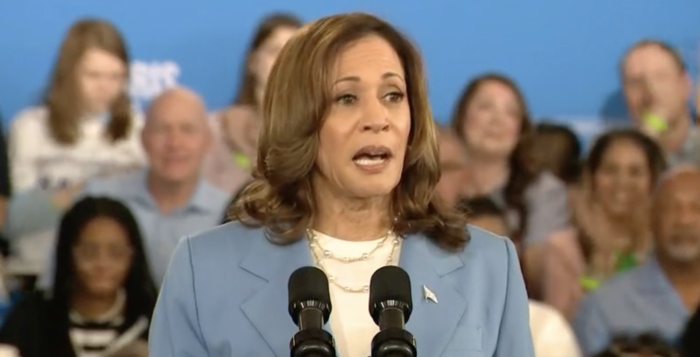Vice President Kamala Harris recently attempted to project a tough stance on border security during a speech in Arizona, a move widely seen as a response to the ongoing border crisis and mounting criticism from Republicans over her role as President Joe Biden’s “border czar.” However, her record on immigration raises serious questions about the sincerity of these claims.
Harris’s legislative history, particularly during her brief tenure in the U.S. Senate, reveals a pattern of advocating for policies that many see as far-left and soft on immigration enforcement. In 2018, Harris sparked controversy by arguing that immigration violations should be treated as civil offenses, rather than criminal ones, aligning herself with the progressive wing of her party.
Her stance on Immigration and Customs Enforcement (ICE) also drew attention when she suggested that the agency might need to be “critically re-examined” and potentially “started from scratch.” This position, considered by some as being on the “far edge” of mainstream politics, has only added to the skepticism surrounding her recent border security rhetoric.
One of the most telling aspects of Harris’s record is her support for legislation during the COVID-19 pandemic that would have effectively ceded U.S. border enforcement to international bodies. The bill she co-sponsored proposed suspending all immigration enforcement in the United States during any public health emergency, national emergency regarding a communicable disease, or “global pandemic declared by the World Health Organization.”
Critics argue that this bill, by giving an international organization like the WHO the power to halt U.S. immigration enforcement, undermines national sovereignty. They also point out that nothing in the legislation would prevent a future president from declaring a public health emergency on unrelated issues, such as gun violence, to suspend border enforcement.
Harris’s immigration record doesn’t stop there. In November 2019, she co-sponsored a bill that introduced a new category of “climate-displaced persons,” allowing up to 50,000 such individuals to enter the country each year. While the bill mentions this figure, it does not set a hard limit, instead giving the president discretion to admit as many individuals as deemed necessary, following consultations with Congress. This has raised concerns about the potential for a significant increase in immigration under such a policy.
Despite her recent attempts to distance herself from some of her more controversial stances, such as her 2020 presidential campaign’s proposal to outlaw private health insurance, Harris’s history of lenient immigration proposals continues to draw criticism. According to a report from Politico, elected officials are banking on a deliberately vague approach to immigration in an effort to shield themselves from GOP attacks. However, Harris’s record suggests that her immigration strategy is anything but fuzzy—it’s deeply rooted in progressive ideology.
As Harris continues to navigate the political landscape, her past positions on immigration will likely remain a focal point of scrutiny, especially as the border crisis remains a central issue in American politics.

